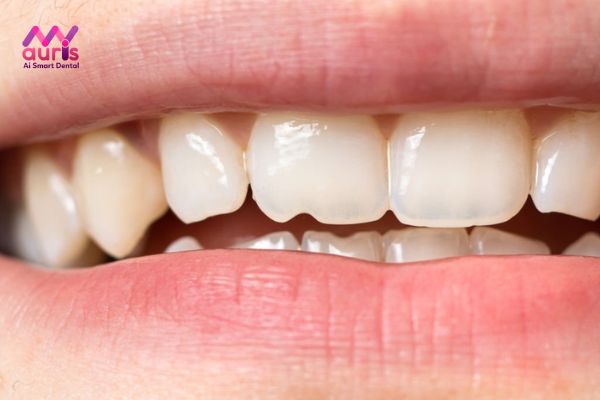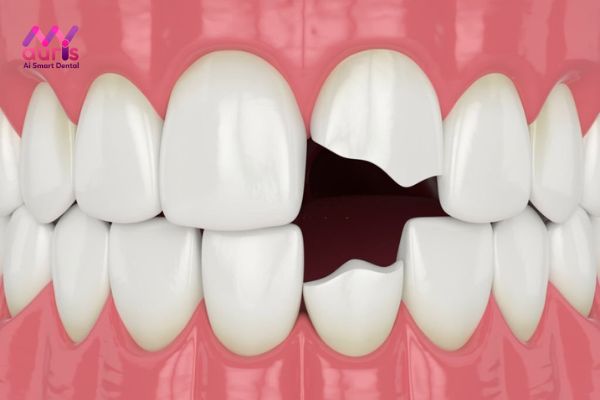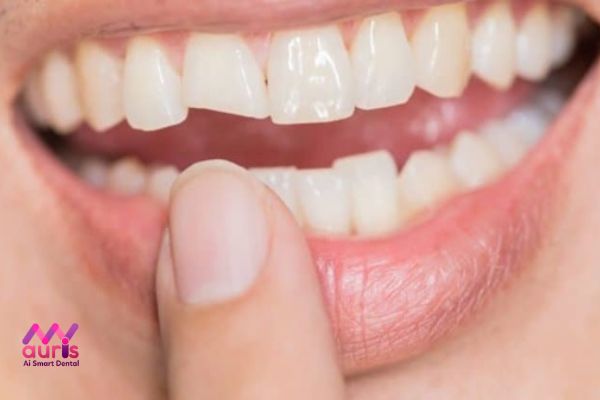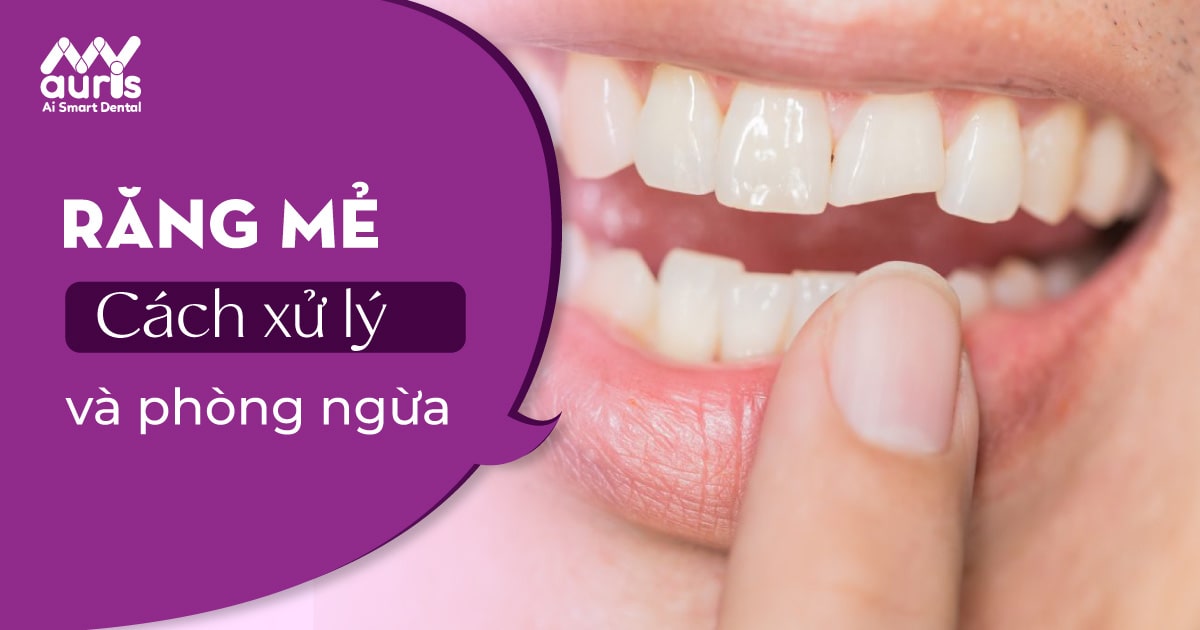Teeth are hard parts of the body but will also be affected if exposed to too strong an impact from the outside. When exposed to these impacts, teeth will be chipped and deformed, leading to tooth pain and sensitivity, especially when eating and drinking. If not treated promptly, there is a risk of extremely dangerous oral diseases such as gingivitis, periodontitis, tooth decay… What is the cause of chipped teeth? How to treat and prevent? Let’s find out!
1. What causes chipped teeth?
Teeth, although hard and strong, can still be chipped, broken, or broken for many different reasons:
- When there is an injury, the tooth is strongly impacted by a hard object or an external force is applied, it will cause cracks or chips.
- The habit of grinding teeth while sleeping regularly also causes teeth to be damaged. abrasion, weakness and susceptibility to cracking and chipping.
- If you intentionally chew or bite too hard food or use your teeth to bite or open bottle caps, it can also cause cracked or chipped teeth.
- Using acidic foods such as pickles, oranges, lemons, coffee, alcohol… also causes natural abrasion of the teeth, making them weaker and more sensitive.
- If you eat irregularly, nutrient deficiencies can also lead to calcium deficiency in your teeth. causing teeth to break easily when chewing.
If teeth are suffering from cavities, periodontitis, pulpitis, etc., they will become more sensitive than normal, easily causing chipping when chewing.
To help customers gain full knowledge and save time searching, we have compiled a detailed article about TEETH, see!!!

2. The risks of chipped teeth
Chiped teeth will be very sensitive, weaker than neighboring teeth, causing difficulty in chewing, especially for teeth with important functions such as molars and canines. This will lead to a situation where the food is not crushed, the stomach and intestines will have to work harder, and over time there will be a risk of causing a number of diseases related to the digestive tract.
If unfortunately while chewing, a piece of tooth breaks off and floats with the food to the digestive organs, which is also very dangerous.
If the chipped tooth is a canine or incisor, it will greatly affect aesthetics. beauty of the entire teeth, causing interference when pronouncing, especially sounds that need to be aerated like “th”, “ph”…
Chiped teeth can also easily expose the dentin, making the teeth more sensitive, causing pain due to external stimulation entering the small ducts on the dentin. If part of the tooth is exposed, it will also make the tooth susceptible to bacteria entering and forming diseases such as tooth decay, pulpitis, periodontitis, abscesses, etc., causing damage.The tumor causes complete tooth loss or affects adjacent teeth.

3. How to handle a chipped tooth
If you feel pain or feel like your tooth has just been chipped, you can handle it as follows:
- If you are eating and you feel your tooth is chipped, broken or broken, you must immediately pull out the broken piece of tooth or spit out the piece of food you are chewing that contains the broken piece. Do not continue chewing because the broken pieces can damage your gums. You should also not swallow the piece of food you are chewing because there will still be debris mixed in, which will be dangerous if sharp debris drifts with the food down to the digestive system.
- Do not arbitrarily check for chipped tooth edges with your tongue or hand because at this time the tooth edges are sharp and will cut your hand or damage the tongue and gums inside the mouth. You should rinse your mouth clean and place a cotton ball on the broken tooth and bite tightly, avoiding the remainder of the chipped tooth from coming into contact with the surrounding soft tissue as well as avoiding bacteria and food from seeping in, causing infection.
- You should collect and keep the broken pieces, store them in a box, do not arbitrarily reattach the broken pieces to the tooth, because without specialized dental equipment, it may cause damage to your gums.
- When the tooth is broken. The remaining part of the tooth will be exposed when chipped or broken, possibly dentin, pulp or gum inside the tooth. If bacteria enter these parts, it will easily cause damage and infection. Therefore, after removing all the fragments, you need to rinse your mouth thoroughly with diluted salt water and then bite back on a new cotton ball.
- After discovering a chipped tooth, you need to see a doctor as soon as possible to promptly handle sharp tooth edges to limit the possibility of exposed tooth tissues being penetrated by bacteria, causing dangerous dental diseases.

4. How to prevent chipped teeth
Chiped teeth will lead to tooth pain and sensitivity. If not treated promptly, there is a risk of extremely dangerous dental diseases such as gingivitis, periodontitis, tooth decay, etc. It is best to prevent chipped teeth with some of the following simple measures:
- For those who have the habit of clenching their teeth when stressed or grinding their teeth while sleeping, they should use a mouthguard (A mouthguard is a tool made from flexible plastic used for players). sports such as basketball, wrestling, football, martial arts, …) to protect teeth, tavoid the consequences of injury. For children and the elderly, you should try to limit falls to avoid harm to your teeth.
- You should use a mouthguard when playing sports, avoid chewing on hard objects such as pencils, pens, nails, rocks…
If you are unlucky enough to have a chipped tooth, you should immediately see a specialist for examination and advice and timely treatment to avoid negative consequences later.
Learn more about chipped teeth and some methods to improve chipped teeth What is a molar? Reason? Harmful?





